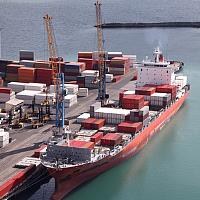(BRUSSELS) – After four years of talks, the EU institutions reached political agreement Tuesday on rules to protect the EU against unfairly cheap imports and combat environmental or social dumping more effectively.
Under the rules – the first major overhaul of the EUs anti-dumping and anti-subsidy instruments in 15 years – new anti-dumping methodology will identify cases where prices of imported products are artificially lowered due to state intervention. Higher tariffs can then be imposed on dumped or subsidised imports, in order to better protect EU jobs and businesses.
“Today we are strengthening our anti-dumping toolkit to provide a fair trade environment for EU producers,” said Estonia’s trade minister Urve Palo, for the EU presidency: “The new rules will be crucial in ensuring that all our trading partners are selling us their products at undistorted prices, and that fair market competition is respected.”
The European Commission welcomed the deal, saying the changes would make the EU’s trade defence instruments more adapted to the challenges of the global economy: “they’ll become more effective, transparent and easier to use for companies, and in some cases will enable the EU to impose higher duties on dumped products”.
“Together with the recently-agreed changes to the anti-dumping methodology, the EU’s tool box of trade defence instruments is in shape to deal with global challenges,” said the EU Trade Commissioner Cecilia Malmström: “The EU stands for open and rules-based trade, but we must ensure that others do not take advantage of our openness. We are and we will continue to stand up for companies and workers suffering from unfair competition.”
The new rules will shorten the current 9 month investigation period for the imposition of provisional measures and make the system more transparent. The companies will benefit from an early warning system that will help them adapt to the new situation in case duties are imposed. Smaller companies will also get assistance from a specific help desk, to make it easier for them to trigger and participate in trade defence proceedings.
Also, in some cases, the EU will adapt its ‘lesser duty rule’ and may impose higher duties. This will apply to cases targeting imports of unfairly subsidised or dumped products from countries where raw materials and energy prices are distorted.
The political agreement will enter into force once the Council and the European Parliament give their final green light.



